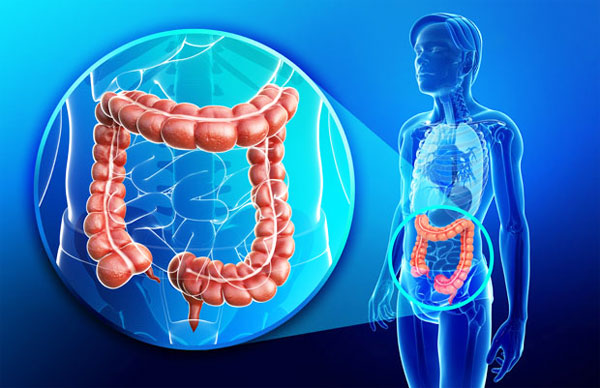Laparoscopic Colorectal Surgery
What Is Laparoscopic Colorectal Surgery?
Laparoscopic colorectal surgery is the procedure used to manage the diseases related to colon and rectum. The surgery is performed when the non-invasive methods are not enough to treat the conditions. The doctor will evaluate your condition to determine if you are eligible for undergoing laparoscopic colorectal surgery. Obesity, large tumour, history of development of scar tissue after surgery may reduce your eligibility for laparoscopic surgery.

What Are The Complications If The Colorectal Diseases Are Not Treated?
The complications due to untreated colorectal diseases depends upon the type and severity of the disease. Colon cancer, if left untreated, may result in life-threatening complications. Further, the colon polyps, if not treated, may progress to cause cancer. Untreated inflammatory bowel syndrome increases the risk of colon cancer, blood clots, and eye, skin and joint inflammation.
What Are The Various Diseases Treated With Laparoscopic Colorectal Surgery In Delhi?
Doctors may treat several diseases with the laparoscopic colorectal surgery. Your doctor will decide your eligibility for undergoing the surgery. Some of the diseases are:
- Inflammatory bowel diseases: Patients with this condition have inflammation in the lining of the colon. The surgeon may remove the inflamed section of the colon. The two types of inflammatory bowel diseases are ulcerative colitis and Crohn’s disease.
- Colon cancer: The cancer of the colon may be primary or secondary. The primary colon cancer initiates in the colon. The secondary cancer starts in the other organ and metastasize to the colon. The surgeon removes either the complete colon or the cancerous part of colon.
- Rectal cancer: Presence of cancerous tissues in the rectum is known as rectal cancer. The doctor may perform laparoscopic surgery to manage this condition.
- Rectal prolapse: Rectal prolapse is the condition in which the rectum displaced from its position and protrudes through the anus. The surgeon performs the laparoscopic surgery to put the rectum back to its original position.
- Diverticulitis: Diverticulum is the condition is the formation of pouches on the walls of the colon. Generally, the condition does not require treatment. However, in some cases these pouches get inflamed. This condition is known as diverticulitis. Some cases of diverticulitis require surgery.
What Are The Various Laparoscopic Colorectal Surgeries Available In Delhi?
There are various laparoscopic colorectal surgeries available in Delhi. Some of them are:
- Total Colectomy: During this surgery, the surgeons remove the complete colon. After removing the colon, the surgeon connects the rectum with the small intestine.
- Total Proctocolectomy: During this procedure, the doctor removes the snus, rectum, and colon. The doctor forms a stoma and attaches it with small intestine.
- Laparoscopic Right hemicolectomy: Right side of the colon is ascending colon. During this procedure, the surgeon removes the right part of the colon. The surgeon then attaches the small intestine with remaining part of colon.
- Laparoscopic left hemicolectomy: Left side of the colon is descending colon. The doctor removes the left part during left hemicolectomy and attached the remaining colon with rectum.
- Laparoscopic Sigmoidectomy: During this surgery, the surgeon removes the sigmoid colon and attaches the descending colon to rectum.
- Laparoscopic low anterior resection: During this procedure, the surgeon removes the sigmoid colon and a part of rectum. The surgeon then attaches the descending colon with the remaining part of rectum.
- Laparoscopic abdominoperineal resection: Complete sigmoid colon or its part, anus and rectum are resected during this procedure. The remaining sigmoid colon is attached to the stoma.
What Are The Advantages Of Laparoscopic Colorectal Surgery?
There are several advantages of laparoscopic colorectal surgery as compared to traditional surgery. The laparoscopic colorectal surgery results in minimal incision and less tissue damage. The recovery time after this procedure is less as compared to traditional surgery. Further, the scars remained after the surgery are also less as compared to open surgery. The risk of complications in laparoscopic colorectal surgery is less as compared to traditional surgery.
What To Expect Before The Laparoscopic Colorectal Surgery?
You should prepare yourself for the colorectal surgery. Follow all the instructions of your doctor strictly. Further, seek all the information from your doctor about the outcome and risks associated with the procedure. The doctor may advise you to take only the liquid and stop taking solid food a day before the surgery. Inform your doctor about the medicines you are taking. Your doctor may ask you to discontinue certain medicines. The doctor may also prescribe laxative to clear your colon.
How The Doctor Performs Laparoscopic Colorectal Surgery?
The healthcare team shifts you into the operation theatre after comprehensively examining your health. In the operation theatre, an intravenous line is attached to your arm. The doctor administers drugs and IV fluid through this line. Anesthesiologist will administer anesthesia to make you sleep. A catheter is also attached to your bladder that drains the urine during the surgery.
The surgeon makes 3-5 small incisions into your abdominal cavity. The surgeon may inject carbon dioxide through the ports to lift the abdominal walls. This will help the surgeon to visualize the internal organs more clearly. The surgeon then inserts a laparoscope through the incision. Through the other incision sites, the surgeon inserts the instruments and performs the surgery by visualizing the monitor. If the surgery is for colon resection, the surgeon creates a relatively large incision to take the colon out. After the surgery is completed, the doctor closes the incision with the stitches and places the bandage to secure the wound.
You may stay in the hospital for 2-4 days. The doctor may prescribe pain medications and antibiotics. The healthcare team will monitor your condition and ensure that there are no complications.
What Are The Complications Of Laparoscopic Colorectal Surgery?
The complications of laparoscopic surgeries have less complications than open surgery. Some of the complications of laparoscopic colorectal surgery are infection, blood clot, risk of anesthesia, injury to nearby organs, blood clots, pneumonia, urinary tract infection, hernia formation, small bowel obstruction, and development of fistula.
How Should I Get More Information About The Laparoscopic Colorectal Surgery In Delhi?
Detailed information about your disease and treatment options will help you to understand your condition better and helps you to take informed decision. Fill the below form to know more details about the laparoscopic colorectal surgery.
Tags = Laparoscopic Colorectal Surgery In Delhi, GI Surgeon in Delhi, Colorectal surgeon in Delhi
For more information = https://www.gastrodelhi.com/
See more blogs = https://gisurgeonindelhi.blogspot.com/2022/06/laparoscopic-gastrointestinal-surgery.html
- What are the causes of pancratic diseases?
- Gallstones treatment and gallbladder stone surgery in delhi at gastrodelhi
- What are the various diseases treated with laparoscopic colorectal surgery in delhi?
- Dr. neeraj goel is the best cancer surgeon in delhi, india
- Robotic surgery in delhi by dr. neeraj goel at gastrodelhi
- Cancer surgeon in delhi - dr. neeraj goel at gastrodelhi
- Dr. neeraj goel, cancer surgeon in delhi at gastrodelhi
- Cancer surgeon in delhi, dr. neeraj goel, and gi surgeon in delhi | gastrodelhi
- How the doctor performs robotic surgery in delhi? | robotic surgery in delhi
- What are the various types of robotic surgeries available in delhi? - robotic surgery in delhi | gastrodelhi

 Comments (
Comments ( Category (
Category ( Views (
Views (